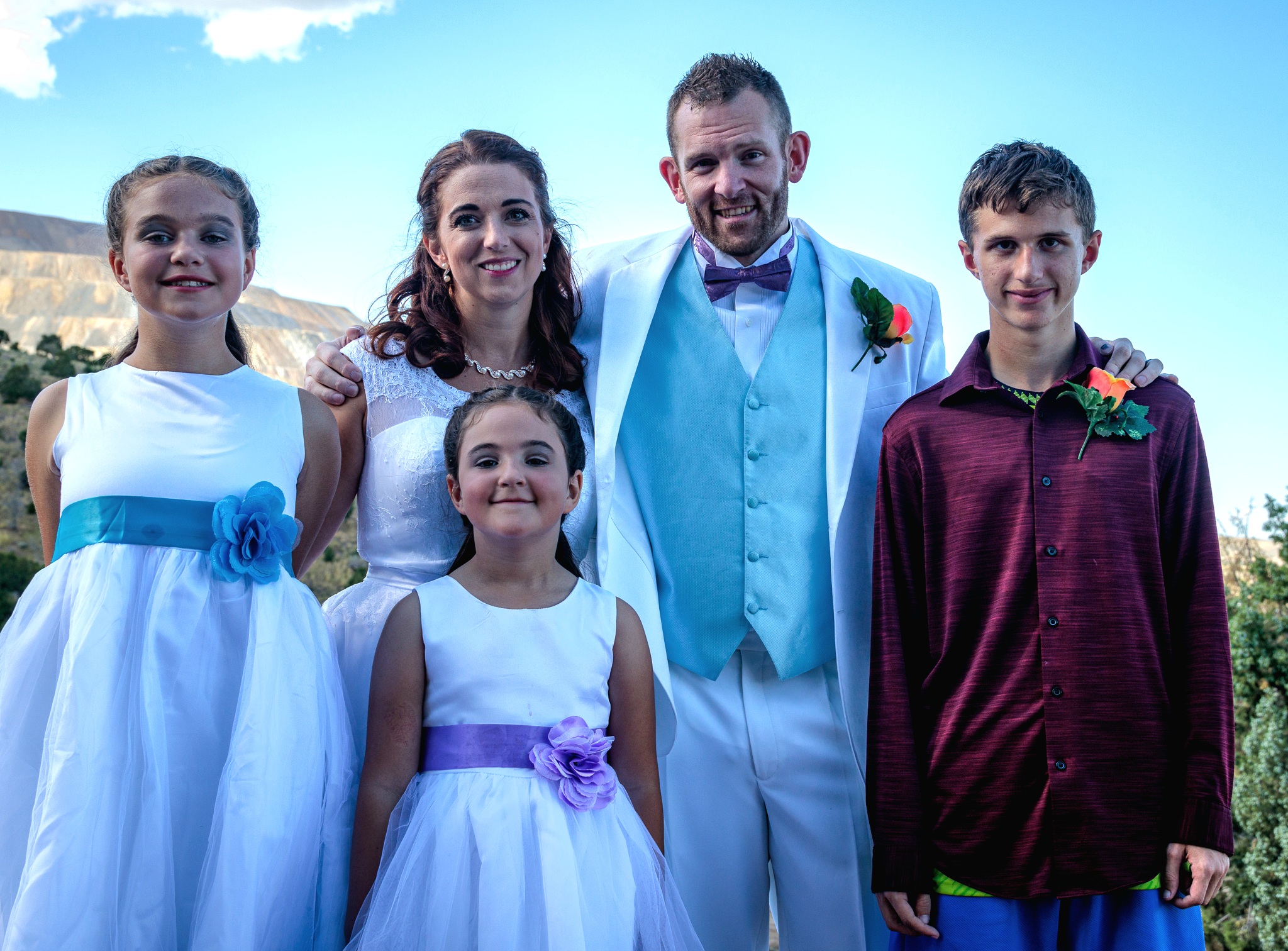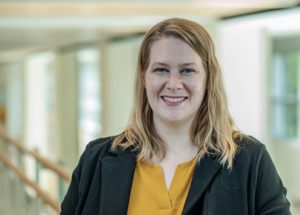
Amanda hopes her cancer journey is a positive example for her kids
April 22, 2024
This is a guest post by Amanda Reitz, a mother of three children who were 13, 9, and 5 years…
Read More
Dr. Erin Tagai received a 2022 KCA Psychosocial Focus Award for her research on “Improving patient-reported outcomes for renal cancer patients on active surveillance.” Dr. Tagai is an Assistant Research Professor at Fox Chase Cancer Center in Philadelphia, Pennsylvania and a health services researcher focused on the development and implementation of clinic-based strategies to improve patient-reported outcomes across the cancer continuum. We spoke with Dr. Tagai about her work and the impact it could have on people with kidney cancer.
Can you summarize your research study?
The number of patients with small growths on the kidney (i.e., small renal masses) continues to grow. Patients with small renal masses who are older, have other illnesses, or have limited life expectancy can successfully manage their diagnosis through active surveillance (AS), which reduces their risk of complications after treatment (e.g., kidney injury after surgery). However, some patients choose to receive delayed treatment (e.g., surgery) because of distress that is often experienced during AS. Additionally, patients who do not receive a biopsy before starting AS may have greater distress as they do not know if their small renal mass is cancerous. Supportive interventions that are designed to help patients manage their distress and improve quality of life may help these patients stay on AS and avoid unnecessary medical treatment. The proposed study will evaluate how patients’ perceived risk of staying on AS as well as their confidence in communication skills and using healthy coping techniques is related to AS-related distress and quality of life. This study will help our research team identify intervention content that aims to improve patients’ risk evaluation and build necessary skills to help patients reduce distress, improve quality of life, and stay on active surveillance.
The study also has the potential to improve patient outcomes through the identification of modifiable psychosocial factors (e.g., self-efficacy for communication) that can be integrated into a patient-centered intervention (e.g., skills building for improving communication with their medical team) to help patients manage AS-related distress and quality of life and ultimately avoid unnecessary treatment.
What was the inspiration for this research project? Why do you think it’s necessary right now?
This research project was developed through a longstanding collaboration with the Fox Chase Cancer Center’s (FCCC) Division of Urology and Urologic Oncology. We have been working across the cancer continuum to improve patient-reported outcomes for our urologic cancer patients and our clinicians identified a gap in psychosocial-oriented care for individuals undergoing active surveillance for a small renal mass. Our clinical team has developed a rigorous program of research assuring safety of AS for patients with a small renal mass, particularly for patients at increased risk of surgical complications. However, research has shown approximately half of those who receive delayed treatment do so because of distress. Our overall goal is to develop a patient-centered intervention to help patients manage distress and maintain quality of life to ultimately stay on AS and reduce unnecessary treatment.
There can be a lot of misconceptions about AS. Can you elaborate on AS-related distress and how it can be harmful?
AS-related distress is when a patient has feelings of sadness, anxiousness, fear, or anger related to undergoing AS for their small renal mass. AS is ideal for small renal masses that are low risk and unlikely to get worse, particularly for patients who are at risk for treatment complications due to comorbidities or other medical factors. However, leaving a mass untreated can understandably leave a patient feeling uneasy and fearful of the mass growing and getting worse. When a patient’s distress is too high they may prefer stopping AS and having active treatment. However, if individuals are well-prepared for AS — such as accurate risk perceptions (e.g., how likely is it the renal mass will grow); communication skills to talk with their medical team and spouse/partner; and coping skills to reduce distress — they may be better able to manage their AS-related distress. Therefore, this grant will allow us to identify what modifiable psychosocial factors (e.g., coping skills) are associated with AS-related distress so we can develop an intervention to provide psychosocial support for all patients on AS for a small renal mass.
What are some key barriers to good communication when it comes to cancer care?
There are several barriers to good communication in cancer care that can negatively impact medical decision making and patient-reported outcomes. One example is health literacy — a patient’s ability to understand and use health information. Not only is it difficult for providers to assess a patient’s health literacy, but patients may experience reduced health literacy after receiving a diagnosis due to distress. Additional communication barriers include language and cultural differences, as well as structural barriers that may lower a patient’s confidence in completing a certain treatment regimen (e.g., health insurance, paid time off work, caregiving duties) that may not be communicated to a provider. Indeed, some recent research has identified patient anxiety, confidence in treatment options, and treatment cost may act as barriers to patient decision making for kidney cancer treatment (See Beyer et al., 2021, Journal of Urology). Our own team at FCCC has an additional pilot study underway to better understand patient-provider communication for small renal mass treatment decision making.
A cancer diagnosis can be a profoundly disempowering moment or time. What would you say to someone who feels this way?
The overarching goal of my research is to help patients develop skills, create realistic expectations, and provide resources to overcome barriers allowing patients to manage their care. Understandably, a cancer diagnosis can feel insurmountable, particularly when first receiving a diagnosis. To those patients who feel disempowered I would say to keep a list of questions for your doctors and care team (nurses are such an invaluable source of information) and bring them with you to each appointment. Seek support from your family and friends and use the resources available at your doctor’s office or cancer center. Here at FCCC we have a patient and caregiver resource center as well as support groups, psychologists, social workers, and financial counselors who can provide a diverse range of informational and emotional support.
What motivates you?
I am motivated through the interactions our research team has with FCCC patients, especially when we receive feedback from patients describing how important our work is and how it has helped them cope with their diagnosis. Through personal experience as a caregiver to family members with cancer, I understand how important it is to not only maximize clinical outcomes, but also help patients and families maintain values, relationships, and personal identity after a cancer diagnosis.
Anything else you’d like others to know about you or your work?
As a health services researcher with a background in public health, I work closely with our clinical team to ensure that we are developing interventions that not only improve patient outcomes, but can be easily integrated into routine clinic care. Additionally, my work has increasingly focused on social determinants of health and identifying the structural barriers that impact patient outcomes (e.g., transportation barriers limiting patient access to recurring radiation appointments) to improve patient-provider communication at critical time points such as treatment decision making as well as improving patient referral to available resources.